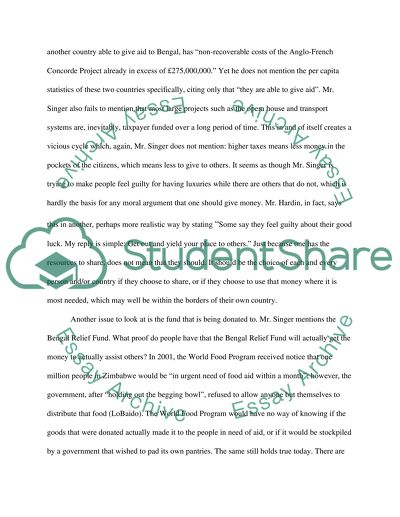Cite this document
(“Peter Singer and Garrett Hardin On Helping the Poor Essay”, n.d.)
Retrieved de https://studentshare.org/english/1436247-peter-singer-and-garrett-hardin-on-helping-the-poor
Retrieved de https://studentshare.org/english/1436247-peter-singer-and-garrett-hardin-on-helping-the-poor
(Peter Singer and Garrett Hardin On Helping the Poor Essay)
https://studentshare.org/english/1436247-peter-singer-and-garrett-hardin-on-helping-the-poor.
https://studentshare.org/english/1436247-peter-singer-and-garrett-hardin-on-helping-the-poor.
“Peter Singer and Garrett Hardin On Helping the Poor Essay”, n.d. https://studentshare.org/english/1436247-peter-singer-and-garrett-hardin-on-helping-the-poor.


